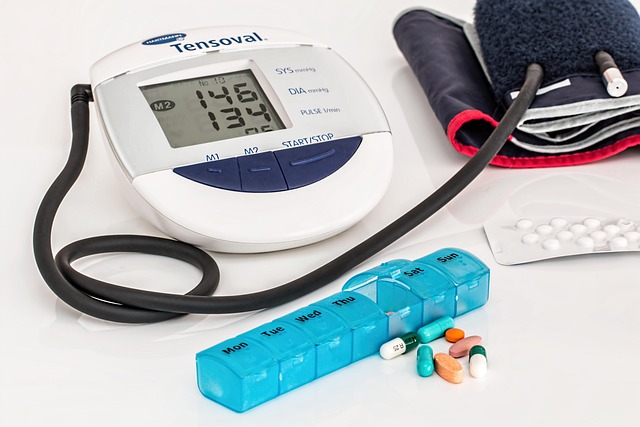Solutions for treating hypertension
Hypertension, commonly known as high blood pressure, is a widespread health concern affecting millions of people worldwide. Left untreated, it can lead to serious complications such as heart disease, stroke, and kidney problems. Fortunately, there are numerous effective solutions for managing and treating hypertension. This article explores various approaches to help individuals control their blood pressure and improve their overall health.

What are the main causes of hypertension?
Understanding the root causes of hypertension is crucial for effective treatment. While some risk factors are beyond our control, such as age and family history, many others can be managed. Common causes include poor diet, lack of physical activity, obesity, excessive alcohol consumption, and high stress levels. Certain medical conditions like kidney disease and hormonal imbalances can also contribute to hypertension. Identifying these factors is the first step in developing a comprehensive treatment plan.
How can lifestyle changes help control blood pressure?
Lifestyle modifications are often the first line of defense against hypertension. Adopting a heart-healthy diet, rich in fruits, vegetables, whole grains, and lean proteins, can significantly impact blood pressure levels. Reducing sodium intake and increasing potassium-rich foods are particularly beneficial. Regular physical activity, such as brisk walking or cycling for at least 30 minutes a day, can help lower blood pressure and improve overall cardiovascular health. Maintaining a healthy weight, limiting alcohol consumption, and quitting smoking are also crucial steps in managing hypertension naturally.
What medications are commonly used to treat hypertension?
When lifestyle changes alone are not sufficient, medication may be necessary to control blood pressure. Several classes of drugs are available, each working in different ways to lower blood pressure. These include diuretics, ACE inhibitors, angiotensin receptor blockers (ARBs), calcium channel blockers, and beta-blockers. The choice of medication depends on various factors, including the severity of hypertension, other health conditions, and potential side effects. It’s essential to work closely with a healthcare provider to find the most suitable medication or combination of drugs.
Are there alternative therapies for managing high blood pressure?
In addition to conventional treatments, some alternative therapies have shown promise in managing hypertension. Practices like meditation, yoga, and deep breathing exercises can help reduce stress and lower blood pressure. Acupuncture and herbal supplements, such as garlic and coenzyme Q10, have also been studied for their potential blood pressure-lowering effects. However, it’s crucial to consult with a healthcare professional before incorporating any alternative therapies, as they may interact with medications or have unforeseen effects.
What new advances are being made in hypertension treatment?
Medical research continues to uncover new approaches to treating hypertension. Recent advances include the development of renal denervation, a minimally invasive procedure that targets nerves in the kidneys to reduce blood pressure. Gene therapy and personalized medicine approaches are also being explored to tailor treatments based on an individual’s genetic profile. Additionally, new combinations of existing medications and novel drug formulations are being studied to improve efficacy and reduce side effects.
How can you effectively monitor and manage your blood pressure at home?
Effective home monitoring is crucial for managing hypertension. Modern blood pressure monitors are easy to use and provide accurate readings. It’s recommended to measure blood pressure at the same time each day, preferably in the morning before taking medications and in the evening. Keep a log of readings to share with your healthcare provider. Smart blood pressure monitors that sync with smartphones can help track trends and provide insights.
For those looking to invest in home blood pressure monitoring devices, here’s a comparison of popular options available in New Zealand:
| Product | Features | Price Estimate (NZD) |
|---|---|---|
| Omron HEM-7121 | Upper arm cuff, 30 reading memory | $80 - $100 |
| Withings BPM Connect | Wi-Fi sync, smartphone app, unlimited storage | $180 - $220 |
| A&D UA-767F | Upper arm cuff, 60 reading memory, irregular heartbeat detection | $120 - $150 |
| Microlife BP A2 Basic | Afib detection, risk indicator, 30 reading memory | $130 - $160 |
Prices, rates, or cost estimates mentioned in this article are based on the latest available information but may change over time. Independent research is advised before making financial decisions.
Effectively treating hypertension often requires a multifaceted approach, combining lifestyle changes, medication, and regular monitoring. By working closely with healthcare providers and staying committed to a healthy lifestyle, individuals can successfully manage their blood pressure and reduce the risk of associated complications. Remember that hypertension management is a long-term commitment, and consistency in following prescribed treatments and lifestyle modifications is key to achieving and maintaining optimal blood pressure levels.
This article is for informational purposes only and should not be considered medical advice. Please consult a qualified healthcare professional for personalized guidance and treatment.
The shared information of this article is up-to-date as of the publishing date. For more up-to-date information, please conduct your own research.




